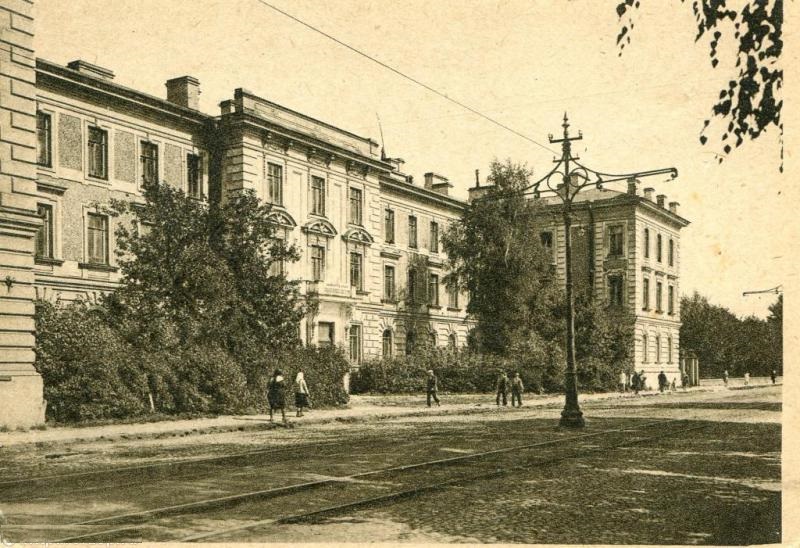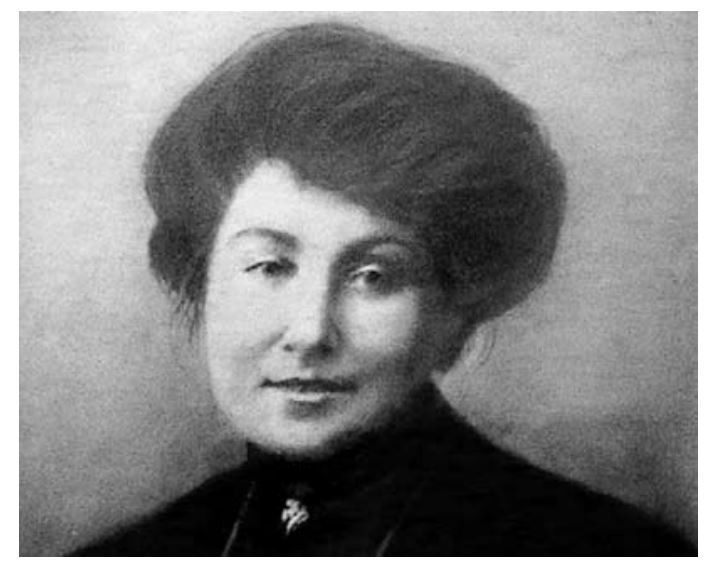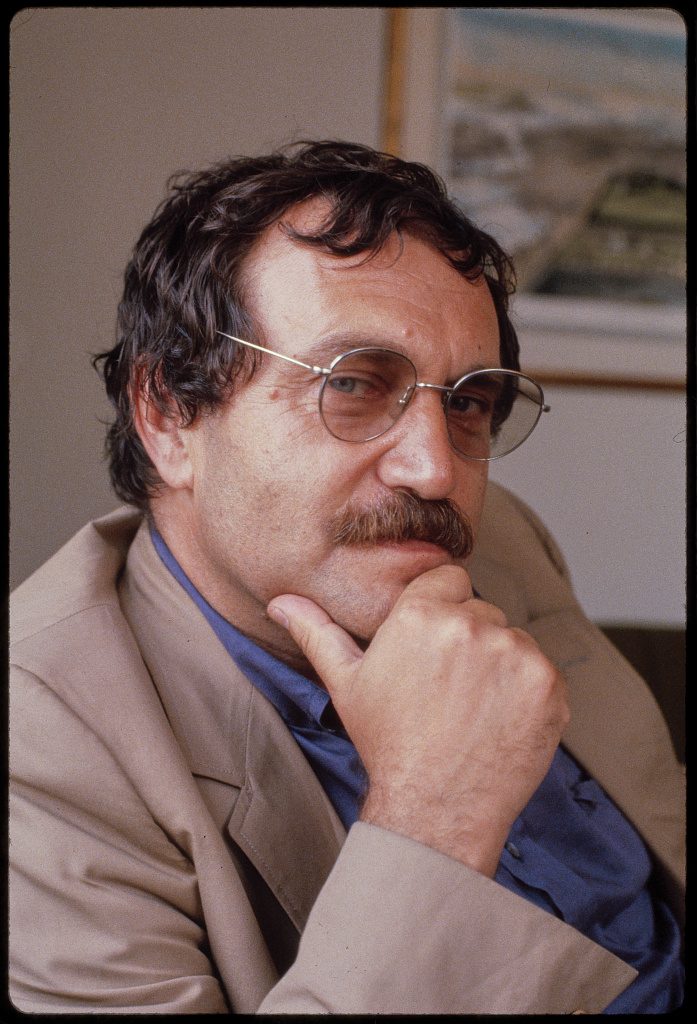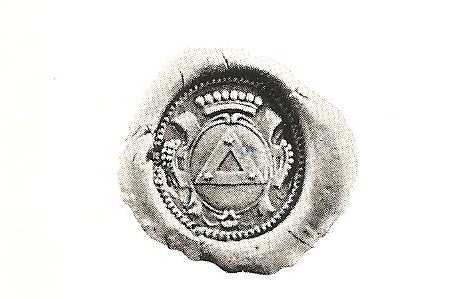|
First Leningrad Medical Institute
The First Pavlov State Medical University of St. Petersburg (russian: Первый Санкт-Петербургский государственный медицинский университет имени академика И. П. Павлова, ПСПбГМУ им. акад. И. П. Павлова) is a medical school located in St. Petersburg. History The Pavlov First Saint Petersburg State Medical University was founded in 1897 as the Medical Institute for Women. It was the first European medical school to admit women. The University has changed names several times since then: It became known as The First Medical Institute of Leningrad in 1924. In 1936, the institute was renamed in honor of Nobel Prize winner Ivan Pavlov. In 1994, the institute was reorganized as a medical university. In the 1930s, the Institute of Chemistry and Pharmacy and the Institute of Pediatrics were spun off as independent institutions. In the 1990s, a number of departments evolved into res ... [...More Info...] [...Related Items...] OR: [Wikipedia] [Google] [Baidu] |
University
A university () is an institution of higher (or tertiary) education and research which awards academic degrees in several academic disciplines. Universities typically offer both undergraduate and postgraduate programs. In the United States, the designation is reserved for colleges that have a graduate school. The word ''university'' is derived from the Latin ''universitas magistrorum et scholarium'', which roughly means "community of teachers and scholars". The first universities were created in Europe by Catholic Church monks. The University of Bologna (''Università di Bologna''), founded in 1088, is the first university in the sense of: *Being a high degree-awarding institute. *Having independence from the ecclesiastic schools, although conducted by both clergy and non-clergy. *Using the word ''universitas'' (which was coined at its foundation). *Issuing secular and non-secular degrees: grammar, rhetoric, logic, theology, canon law, notarial law.Hunt Janin: "The university ... [...More Info...] [...Related Items...] OR: [Wikipedia] [Google] [Baidu] |
Tuberculosis
Tuberculosis (TB) is an infectious disease usually caused by '' Mycobacterium tuberculosis'' (MTB) bacteria. Tuberculosis generally affects the lungs, but it can also affect other parts of the body. Most infections show no symptoms, in which case it is known as latent tuberculosis. Around 10% of latent infections progress to active disease which, if left untreated, kill about half of those affected. Typical symptoms of active TB are chronic cough with blood-containing mucus, fever, night sweats, and weight loss. It was historically referred to as consumption due to the weight loss associated with the disease. Infection of other organs can cause a wide range of symptoms. Tuberculosis is spread from one person to the next through the air when people who have active TB in their lungs cough, spit, speak, or sneeze. People with Latent TB do not spread the disease. Active infection occurs more often in people with HIV/AIDS and in those who smoke. Diagnosis of active TB is ... [...More Info...] [...Related Items...] OR: [Wikipedia] [Google] [Baidu] |
Tumani Corrah
Professor Sir Tumani Corrah is a Gambian clinician whose fields of research include tuberculosis, HIV and malaria. Corrah is Director of the Africa Research Excellence Fund (AREF) and Director, Africa Research Development, Medical Research Council. Academic career Tumani Corrah studied medicine at the First Pavlov State Medical University of St Petersburg, Russia and University College Ibadan, Nigeria. In the late seventies he went to the UK, first to Edinburgh then to Wales, where he trained for his Membership of the Royal College of Physicians as a chest physician in the Department of Medicine, Gwynedd General Hospital. In 1981, after obtaining his MRCP he was appointed consultant physician. In 2014 Tumani Corrah was appointed as the first Emeritus Director of thMRC Unit in the Gambiaand was awarded an Honorary Fellowship by The London School of Hygiene and Tropical Medicine in recognition of his outstanding contribution to the progress of clinical research in The Gambia a ... [...More Info...] [...Related Items...] OR: [Wikipedia] [Google] [Baidu] |
Sofiya Lisovskaia
Sofiya Nikolayevna Lisovskaia (russian: София Николаевна Лисовская; 1876–1951) was a Russian Empire and Soviet physician known for her prolific research in immunology and urology. She was the first Russian woman - Professor of Urology and the founder of the Urology Chair at the First Leningrad Medical Institute (currently, First Pavlov State Medical University of St. Peterburg). She headed the chair for 28 years (1923-1951). Education She studied at the Petersburg Women's Medical Institute and earned her medical degree in 1911. Career In 1917, she organized the First Leningrad Medical Institute (her alma mater, renamed after the Russian Revolution) the Privatdozent courses on urology at the Chair of operative surgery headed by Professor A.A. Kadyan (1849-1917). In 1923, her courses were reorganized into an independent Chair that she headed until her death. She published 86 papers throughout her career, including her doctoral thesis on thyroid trans ... [...More Info...] [...Related Items...] OR: [Wikipedia] [Google] [Baidu] |
Ilya Averbakh
Ilya Aleksandrovich Averbakh (russian: Илья Александрович Авербах) (July 28, 1934, Leningrad – January 11, 1986, Moscow) was a Soviet film director. His 1972 film, ''Monologue'', was entered into the 1973 Cannes Film Festival. Averbakh was awarded the title Merited Artist of the RSFSR in 1976. His wife, screenwriter Natalia Riazantseva, wrote the scripts for several of his films. In 2003, Andrei Kravchuk made a documentary about the director. Life and career Averbakh graduated from Leningrad Medical Institute in 1958 and practiced as a doctor before enrolling in Goskino’s Advanced Screenwriting Courses, where he studied with Evgeni Gabrilovich until 1964. He joined the Supreme Courses for Screenwriters and Directors (affiliated with Lenfilm Studio), which he completed in 1967; one of his teachers was Grigori Kozintsev. His solo feature directorial debut, '' Degree of Risk'' (1968), based on the book by cardiologist Nikolai Amosov, is about an inten ... [...More Info...] [...Related Items...] OR: [Wikipedia] [Google] [Baidu] |
Vasily Aksyonov
Vasily Pavlovich Aksyonov ( rus, Васи́лий Па́влович Аксёнов, p=vɐˈsʲilʲɪj ˈpavləvʲɪtɕ ɐˈksʲɵnəf; August 20, 1932 – July 6, 2009) was a Soviet and Russian novelist. He became known in the West as the author of ''The Burn'' (''Ожог'', ''Ozhog'', from 1975) and of '' Generations of Winter'' (''Московская сага'', ''Moskovskaya Saga'', from 1992), a family saga following three generations of the Gradov family between 1925 and 1953. Early life Vasily Aksyonov was born to Pavel Aksyonov and Yevgenia Ginzburg in Kazan, USSR on August 20, 1932. His mother, Yevgenia Ginzburg, was a successful journalist and educator and his father, Pavel Aksyonov, had a high position in the administration of Kazan. Both parents "were prominent communists." In 1937, however, both were arrested and tried for her alleged connection to Trotskyists. They were both sent to Gulag and then to exile, and "each served 18 years, but remarkably survived." "La ... [...More Info...] [...Related Items...] OR: [Wikipedia] [Google] [Baidu] |
Yelena Bonner
Yelena Georgiyevna Bonner (russian: link=no, Елена Георгиевна Боннэр; 15 February 1923 – 18 June 2011) , , 19 June 2011. was a in the former and wife of the physicist . During her decades as a dissident, Bonner was n ... [...More Info...] [...Related Items...] OR: [Wikipedia] [Google] [Baidu] |
Alexander Rosenbaum
Alexander Yakovlevich Rosenbaum PAR (russian: link=no, Александр Яковлевич Розенбаум, ''Aleksandr Jakovlevič Rozenbaum'') (born September 13, 1951) is a Russian bard from Saint Petersburg. Graduated from the First Pavlov State Medical University of St. Peterburg in 1974, Rosenbaum worked in the medical field for four years. His musical education consists of piano and choreography courses at a musical school. In 1968, while still a student, Rosenbaum started writing the songs for which he is famous. His early songs were for student plays, but he soon also wrote for rock groups and started performing as a singer-songwriter in 1983, sometimes under the pseudonym "Ayarov". Among his most famous songs are the ones about Leningrad, the Soviet–Afghan War, Cossacks, and Odessa. Songs such as "Gop-Stop" (a comedy about two gangsters executing an unfaithful lover) and "Vals-boston" ( The Boston Waltz) are popular across Russian social groups and generation ... [...More Info...] [...Related Items...] OR: [Wikipedia] [Google] [Baidu] |
Nobel Family
The Nobel family ( , ) is a prominent Swedes, Swedish and Russians, Russian family closely related to the history both of Sweden and of Russia in the 19th and 20th centuries. Its legacy includes its outstanding contributions to philanthropy and to the development of the armament industry and of the oil industry. Some of its foremost members are Immanuel Nobel, the younger, engineer developer of underwater naval mines and inventor of the rotary lathe used to produce plywood, Ludvig Nobel, the founder of Branobel and one of the richest and most important men in Russia at his time, and Alfred Nobel, the inventor of dynamite who left the major part of his estate to the creation of the Nobel Prizes. Origins The Nobel family originated from the village of Östra Nöbbelöv in Scania, hence the name. The first member was Petrus Olai Nobelius (1655–1707) who married Wendela Rudbeck (1668–1710), daughter of the famous Swedish scientist Olaus Rudbeck the Elder, also known as Olof Rudbe ... [...More Info...] [...Related Items...] OR: [Wikipedia] [Google] [Baidu] |
Marta Helena Nobel-Oleinikoff
Marta Helena Nobel-Oleinikoff (Russian: Марта Людвиговна Нобель-Олейникова), née Marta Helena Nobel (9 October 1881, Saint Petersburg – 1973, Stockholm), was a Russian-Swedish physician and philanthropist and member of the Nobel family. She was the daughter of industrialist and humanitarian Ludvig Nobel and the niece of Alfred Nobel. In 1904, she graduated from the St. Petersburg's Women's Medical Institute, presently First Pavlov State Medical University of St. Peterburg, its Surgery Clinic. She was the head physician of the Branobel war hospital and was awarded the Finnish Winter War Medal in 1940. In 1905, she married a doctor specialist in infectious diseases, professor G. P. Oleinikoff. She was the grandmother of Michael Nobel. Nobel opposed the creation of the Bank of Sweden prize in economics, and stated in a letter to the Nobel Foundation The Nobel Foundation ( sv, Nobelstiftelsen) is a private institution founded on 29 June 1900 to ... [...More Info...] [...Related Items...] OR: [Wikipedia] [Google] [Baidu] |
Natalia Bekhtereva
Natalia Petrovna Bekhtereva ( rus, Ната́лья Петро́вна Бе́хтерева, p=ˈbʲextʲɪrʲɪvə; July 7, 1924 – June 22, 2008) was a Soviet and Russian neuroscientist and psychologist who developed neurophysiological approaches to psychology, such as measuring the impulse activity of human neurons. She was a participant in the documentary films ''The Call of the Abyss'' (russian: Зов бездны) and ''Storm of Consciousness'' (russian: Штурм сознания), which aroused wide public interest. Candidate of Biological Sciences, Doctor of Medicine, Full Professor. Biography She is Vladimir Bekhterev's granddaughter. She was brought up with her brother in an orphanage. She graduated from the First Pavlov State Medical University of St. Petersburg (1941–1947) and graduate school of the Pavlov Institute of Physiology. In the summer of 1941, more than 700 students entered the University; by the end of the training, only 4 graduates survived. The re ... [...More Info...] [...Related Items...] OR: [Wikipedia] [Google] [Baidu] |




